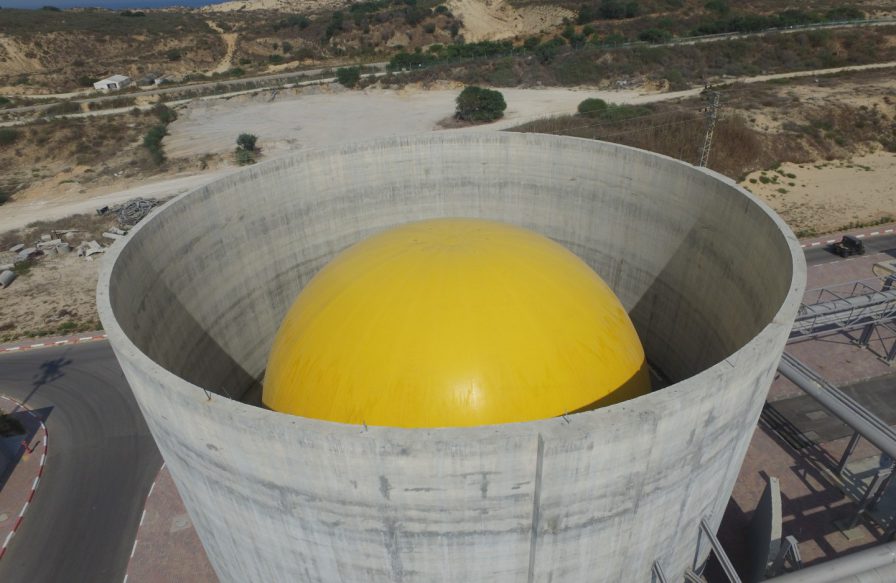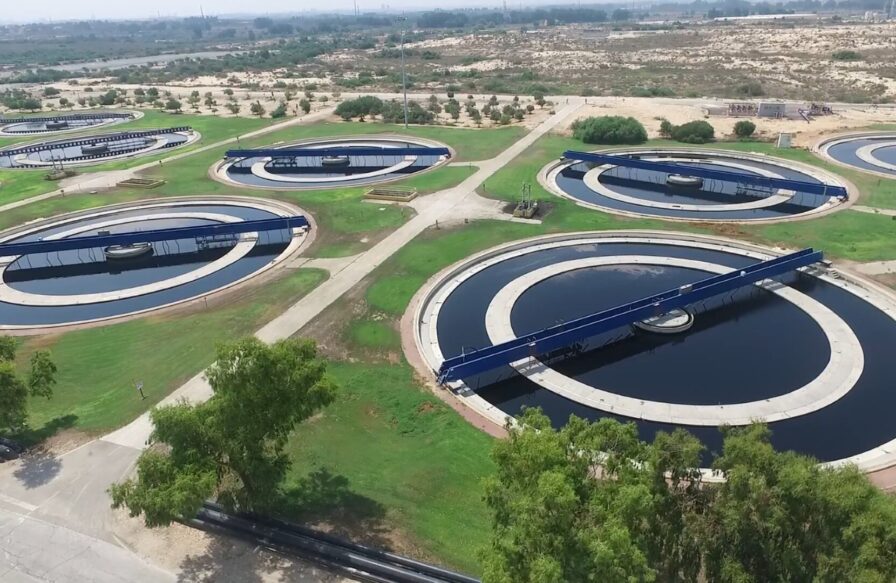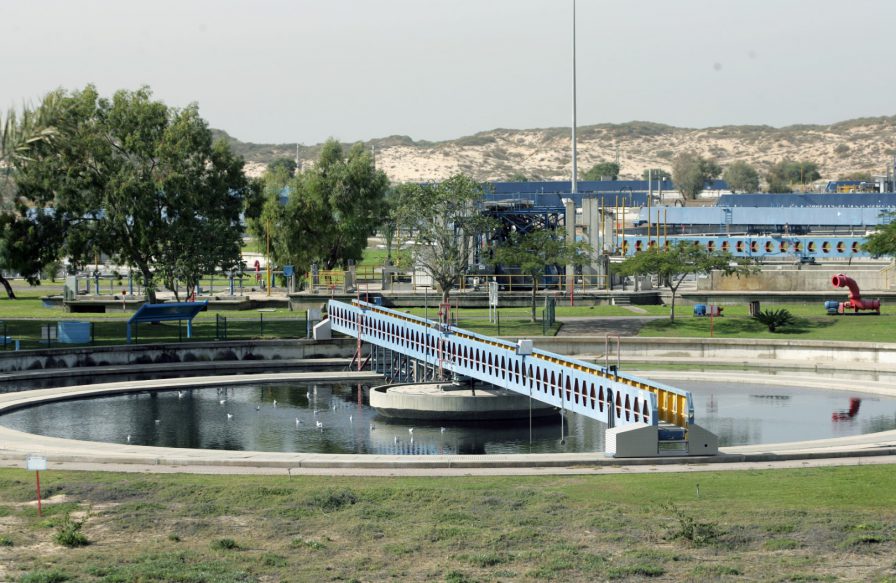A permanent commitment to the last drop
One of the key solutions for increasing the water supply in conditions of shortage, is water reuse. Every drop of water goes through a smart, sophisticated, and sustainable economic circle, creating synergy between household and agricultural use.
An example of circular water use is the Third Line to the Negev, which carries 140 million cubic meters of recycled water a year from Israel’s central metropolitan area to advanced agricultural management in the southern desert.

The water comes from household effluent that Mekorot treats at the Shafdan Wastewater Treatment Plant, the largest of its kind in the Middle East. After treatment, special technology pumps the water into the aquifer without mixing it with the natural water present in it. In the aquifer, deep in the Earth, the water undergoes further treatment through natural filtration processes, without human or mechanical contact. These processes achieve highest quality recycled water that is supplied to farmers in the desert at a feasible cost for the unrestricted irrigation of any crop or public space at no health risk.
The synergy that we have created maximizes water use from household consumption to crop irrigation, thereby strengthening the nutritional stability of families, which enjoy quality and nutritious food thanks to the reuse of excellent water.

Our extensive professional operations in the sector account for 60% of the treated wastewater economy, contributing to Israel’s global achievements in water improvement and reuse under the strictest standards.
In a world thirsty for advanced solutions, the circular economy opens before us opportunities to supply more drinking water, increase the supply of water to agriculture and industry, and ensure economic viability for manufacturing and preservation of the environment, which is precious to us all, by reducing ecological damage.

